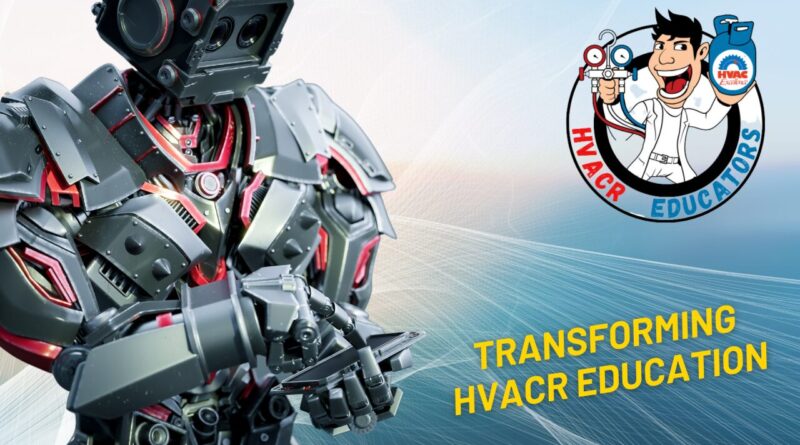Transforming HVACR Education
Rapid advancements in Heating, Ventilation, Air Conditioning, and Refrigeration (HVACR) technologies have sparked significant enhancements in comfort, energy efficiency, sustainability, and environmental health. As we look towards the future, it’s crucial not only to embrace these technological innovations but also to revamp our education system, ensuring the next generation of HVACR professionals is equipped to excel in this ever-evolving field.
The Evolution of HVACR Technology
HVACR technologies have progressed significantly from their humble beginnings. Gone are the days of simple air conditioning systems; today, we have intelligent thermostats that learn and adapt to user preferences, smart control devices optimizing energy usage, and geothermal heat pumps harnessing renewable energy sources. These innovations have made HVACR systems more efficient, user-friendly, and environmentally friendly.
The Need for a Skilled Workforce
As HVACR systems become more sophisticated, there’s a growing demand for skilled professionals to design, install, and maintain them. Reports indicate a shortage of technicians trained to work with modern HVACR technology, creating a skills gap. To bridge this gap, we must transform our education system to meet the industry’s evolving needs.
Revamping HVACR Education
Modernizing curriculum and embracing new technologies are key to transforming HVACR education. Institutions must collaborate with industry leaders to update curricula, focusing on emerging trends like smart systems, energy management, and sustainable design. Integrating virtual reality (VR), augmented reality (AR), and online platforms can enhance hands-on training and troubleshooting.
Incorporating environmental consciousness into HVACR education is crucial, teaching students energy-efficient practices, renewable energy integration, and low-GWP refrigerants use. Ongoing professional development through continuing education programs and industry certifications keeps technicians abreast of the latest technologies.
Close collaboration between educational institutions and industry stakeholders is essential, facilitating internships, apprenticeships, and job placement programs. This provides students with practical experience and a smooth transition into the workforce.
Benefits of Transforming HVACR Education
Transforming HVACR education ensures graduates possess the skills to meet industry demands, driving innovation, enhancing system performance, and meeting sustainability goals. Education focused on energy-efficient practices leads to reduced energy consumption, lower utility bills, and minimized environmental impact. Technicians equipped with the latest knowledge can optimize system performance and promote energy-saving techniques to consumers.
Conclusion
The future of HVACR technology holds immense potential to improve comfort, energy efficiency, and sustainability. To leverage these advancements, we must transform HVACR education to prepare a skilled workforce. By modernizing curricula, incorporating technology, promoting sustainability, encouraging professional development, and fostering industry collaborations, we can create a future where HVACR professionals lead in building a more sustainable tomorrow.
Join us for the National HVACR Education Conference to be part of the solution. Learn more and register at escogroup.org.

